Henry Kirke Porter was born November 24, 1840 in Concord NH. He was educated at Brown University, Newton (MA) Theological Seminary,
and (after serving in the Massachusetts Volunteer Militia during the Civil War) at Rochester (NY) Theological Seminary. A gift of
$20,000 from his father in 1866 changed the course of his life. Henry invested that money with a partner, John Y. Smith, to form
the Smith Porter Machine Works in Pittsburgh PA. Their business grew to become H. K. Porter, Inc., which became the
largest producer of industrial locomotives.
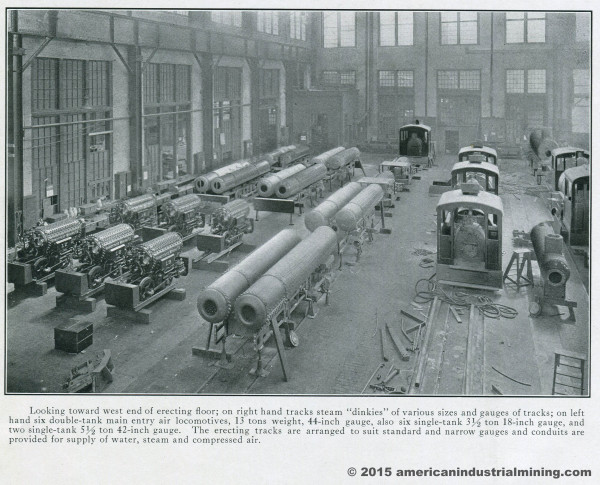
Photo: americanindustrialmining.com/porter-locomotives
Porter built almost eight thousand locomotives, the last one in 1950. The firm was known for switchers that were much smaller
than those normally used by Class 1 railroads. Most Porters were small enough to be operated by only one person and were conventional
fuel-burning steam locomotives. A few were fireless steamers that ran on compressed air or were powered by gasoline or diesel engines.
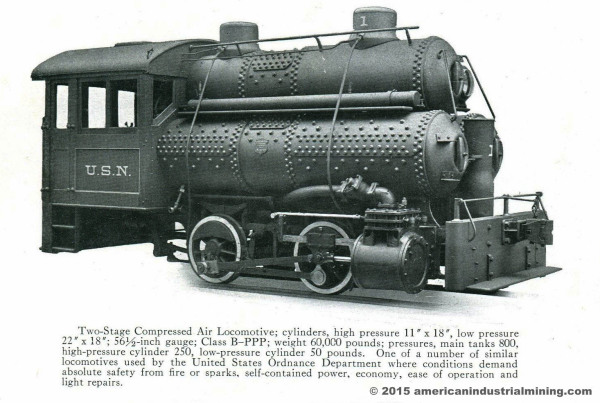
Photo: americanindustrialmining.com/porter-locomotives
Although fireless locomotives were necessities of a select group of H. K. Porter Inc customers the vast majority of the locomotives
were typical fire fed steam easily identified by the smokestack.
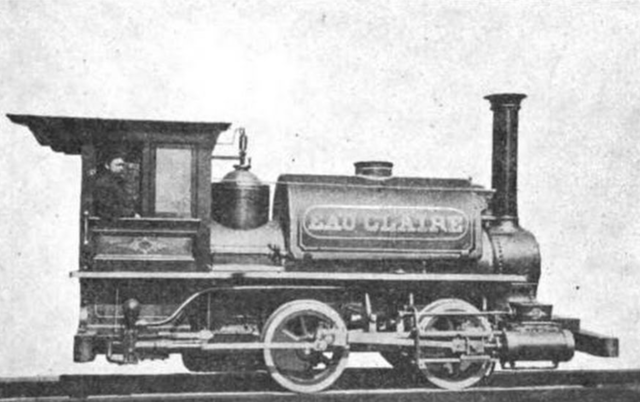
H.K. Porter locomotive EAU CLAIRE circa 1868 Photo: Public Domain
K-Line and later K-Line by Lionel, offered an 0-4-0 tank engine for O gauge 3-rail that was typical of Porter's diminutive
steam switchers. It came in outfits that were equipped with Kadee-style scale couplers. Optional Lionel-style knuckle couplers
could be installed by the purchaser; however, these looked enormously oversized on such a tiny locomotive. It was also offered
later for separate sale in various roadnames.
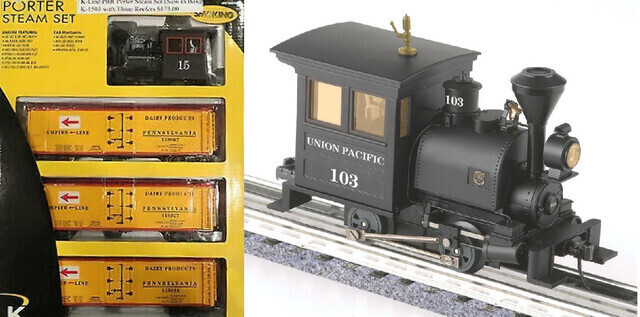
Left, K Line K 1503 Porter set from 2005 Photo: Worthpoint.com
Right, K Line by Lionel 6-21320 UP Porter Photo: Lionel.com
The little engine that filled so many niches has been modeled in almost every gauge. A quick check finds highly detailed examples
in 0n30 all the way up to G scale. Resin cast static models are also available to add realism to detailed layouts for scale modelers
who wish to showcase the diminutive engine that did so much for so long. It's rumored the Disney Thunder Mountain ride is
modeled after the Porter locomotive.
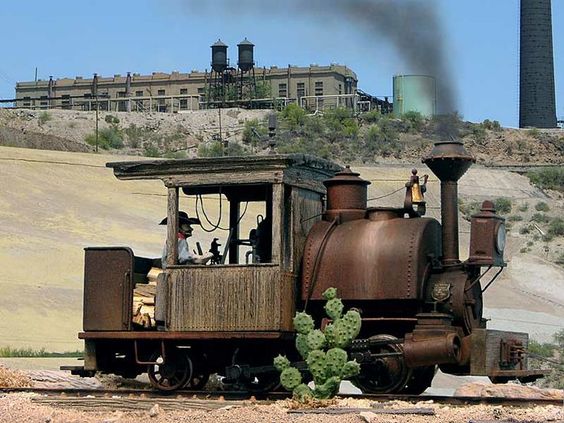
Photo: Robert Hewitt via pinterest.com
Joseph Lechner and Chris Allen
re-posted from the TCA-sponsored Toy Trains Mailing List




